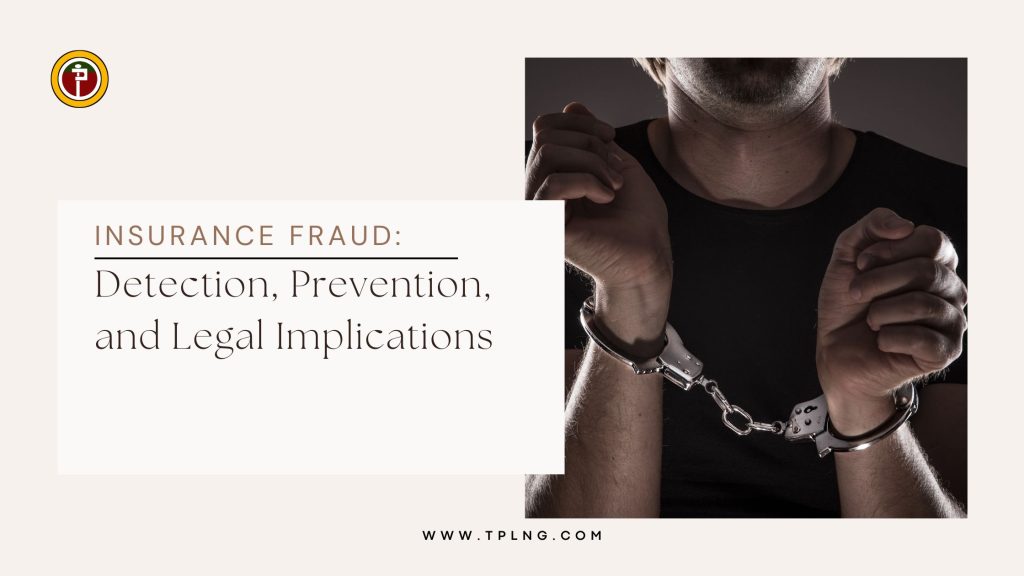Insurance fraud is a significant issue that affects both insurers and policyholders worldwide. In Nigeria, this problem has been on the rise, impacting the stability of the insurance industry and leading to higher premiums for honest customers. Understanding insurance fraud, its detection, prevention, and legal implications can help mitigate its effects and protect the integrity of the industry.
What is Insurance Fraud?
Insurance fraud occurs when an individual or entity intentionally deceives an insurance company to receive a benefit or payout that they are not entitled to. This can happen at any stage of the insurance process, from applying for insurance to filing a claim. Fraudulent activities can range from exaggerated claims to outright fabrications.
Also read How Reinsurance Supports the Nigerian Insurance Market
Types of Insurance Fraud
1. Application Fraud: This occurs when false information is provided on an insurance application to obtain lower premiums or more favorable terms. Examples include underreporting the value of assets or lying about personal health conditions.
2. Claims Fraud: The most common type of insurance fraud, claims fraud happens when an individual exaggerates or fabricates a claim. Examples include staging accidents, inflating the value of stolen or damaged property, or claiming for injuries that never occurred.
3. Premium Diversion: This type of fraud is typically committed by agents or brokers who divert premiums paid by policyholders for their personal gain instead of forwarding them to the insurance company.
4. Faked Death: In life insurance, some individuals go as far as faking their death or that of a beneficiary to claim life insurance benefits.
The Impact of Insurance Fraud
Insurance fraud has far-reaching consequences. It leads to financial losses for insurance companies, which in turn can result in higher premiums for consumers.
Additionally, it undermines public trust in the insurance industry, making it harder for legitimate claims to be processed quickly and fairly. The ripple effects of fraud can also stifle economic growth by destabilizing the insurance market, which is a critical component of a healthy economy.
Detection of Insurance Fraud
Detecting insurance fraud requires a combination of technology, human expertise, and a robust legal framework. Some key methods include:
1. Data Analytics and Artificial Intelligence: Insurers are increasingly using advanced data analytics and AI to detect patterns that may indicate fraudulent activity. By analyzing large datasets, these technologies can flag suspicious claims for further investigation.
2. Claims Investigators: Human expertise remains crucial in detecting fraud. Trained investigators examine claims, conduct interviews, and gather evidence to identify inconsistencies or red flags.
3. Cross-Industry Collaboration: Insurers often collaborate with each other and with government agencies to share information on suspected fraudsters and develop best practices for detection.
4. Public Awareness Campaigns: Educating the public about the consequences of insurance fraud and how to spot it can also help in its detection. Honest policyholders who are aware of common fraud tactics are more likely to report suspicious activities.
Also read Understanding The Impact and Implications Proximate Cause in Nigerian Insurance
Prevention of Insurance Fraud
Preventing insurance fraud is a proactive approach that involves several strategies:
1. Stringent Underwriting Processes: Insurers can reduce the risk of fraud by implementing strict underwriting processes. This includes thorough verification of information provided by applicants and the use of predictive analytics to assess risk factors.
2. Employee Training: Regular training for employees on how to detect and prevent fraud is essential. Frontline staff should be equipped with the skills to identify suspicious behavior and know the procedures for escalating their concerns.
3. Policyholder Education: Educating policyholders about the importance of providing accurate information and the consequences of fraud can deter dishonest behavior. Clear communication about what constitutes fraud and the legal repercussions can make a significant difference.
4. Advanced Technology: The use of blockchain, AI, and machine learning can prevent fraud by ensuring data integrity, automating claim assessments, and detecting anomalies in real-time.
Legal Implications of Insurance Fraud in Nigeria
In Nigeria, insurance fraud is a criminal offense that can result in severe legal consequences. The Insurance Act of 2003 and the Criminal Code are the primary legal frameworks governing insurance fraud in the country. Here’s a breakdown of the legal implications:
1. Criminal Prosecution: Individuals found guilty of insurance fraud can face criminal charges, which may result in imprisonment, fines, or both. The severity of the punishment depends on the nature and extent of the fraud.
2. Civil Liability: Beyond criminal charges, fraudsters can also be held civilly liable for damages. This means that insurers can sue the fraudster to recover any losses incurred due to the fraudulent activity.
3. Loss of Insurance License: For agents or brokers involved in fraud, the Nigerian Insurance Commission (NAICOM) may revoke their license to practice, effectively ending their career in the insurance industry.
4. Public Disclosure: In some cases, convicted fraudsters are publicly named, which can have severe reputational consequences. This serves as a deterrent to others who might consider engaging in similar activities.
5. Increased Regulatory Scrutiny: Insurance companies that experience high levels of fraud may come under increased scrutiny from regulators. This can result in additional compliance requirements and oversight, which can be costly and time-consuming.
Also read Understanding the Concept of Indemnity in Insurance
In conclusion, insurance fraud is a pervasive issue that poses significant challenges to the Nigerian insurance industry. However, it is possible to mitigate its impact with the right combination of detection, prevention, and legal measures. By leveraging technology, educating policyholders, and enforcing strict legal consequences, the industry can protect itself from fraud and maintain the trust of the public.
Transparent Protection Ltd remains committed to driving awareness about insurance fraud and empowering both insurers and policyholders to safeguard against this ever-present threat.
Take advantage of the next article, subscribe now!
Have questions about claim settlements or need assistance with your insurance policy? Our team is here to help! Reach out to us via email at info@tplng.com or give us a call at 0905-776-6182. We’re committed to ensuring genuine claim settlements and supporting our valued members.
TPL, your satisfaction is our priority.




